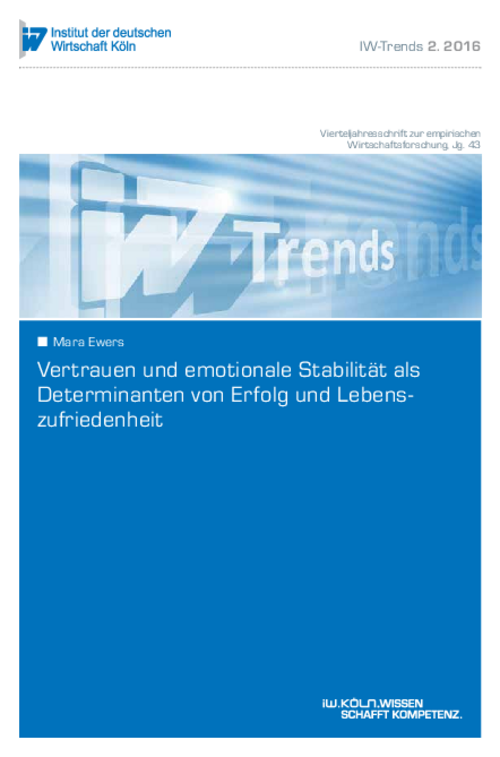How can differences in good and successful lives, defined in terms of life and work satisfaction, gross hourly wage, health and years of training, be explained? The results of inter-disciplinary research by economists and psychologists raise doubts as to whether economic preferences and social and economic environment are the only determining factors. The present study shows that inequality also results from the development of personality. Economic preferences and personality traits are not entirely interchangeable. Rather they are complementary characteristics. In all areas of life examined in the study, successful individuals in Germany manifest particularly high values for emotional stability and trust: 72 per cent of those who completely agreed with the statement "People are generally to be trusted” reported a high level of satisfaction with life, compared with only 52 per cent of all Germans.

Trust and Emotional Stability as Determinants of Success and Life Satisfaction
IW-Trends


Mara Ewers: Vertrauen und emotionale Stabilität als Determinanten von Erfolg und Lebenszufriedenheit
IW-Trends

More on the topic

Leadership in transformation: Megatrends and management as a driver of change
Leadership dynamics in companies are subject to constant change in order to meet the challenges of their time. Today, the greatest influences result from developments such as demographic change, globalization, individualization, structural change and ...
IW
Green Nudging – a key against littering?
The demand for cleanliness in cities is increasing: "Littering" - the illegal littering of public spaces - does not only cause costs for the environment and society, but also has significant financial consequences through increased cleaning costs.
IW